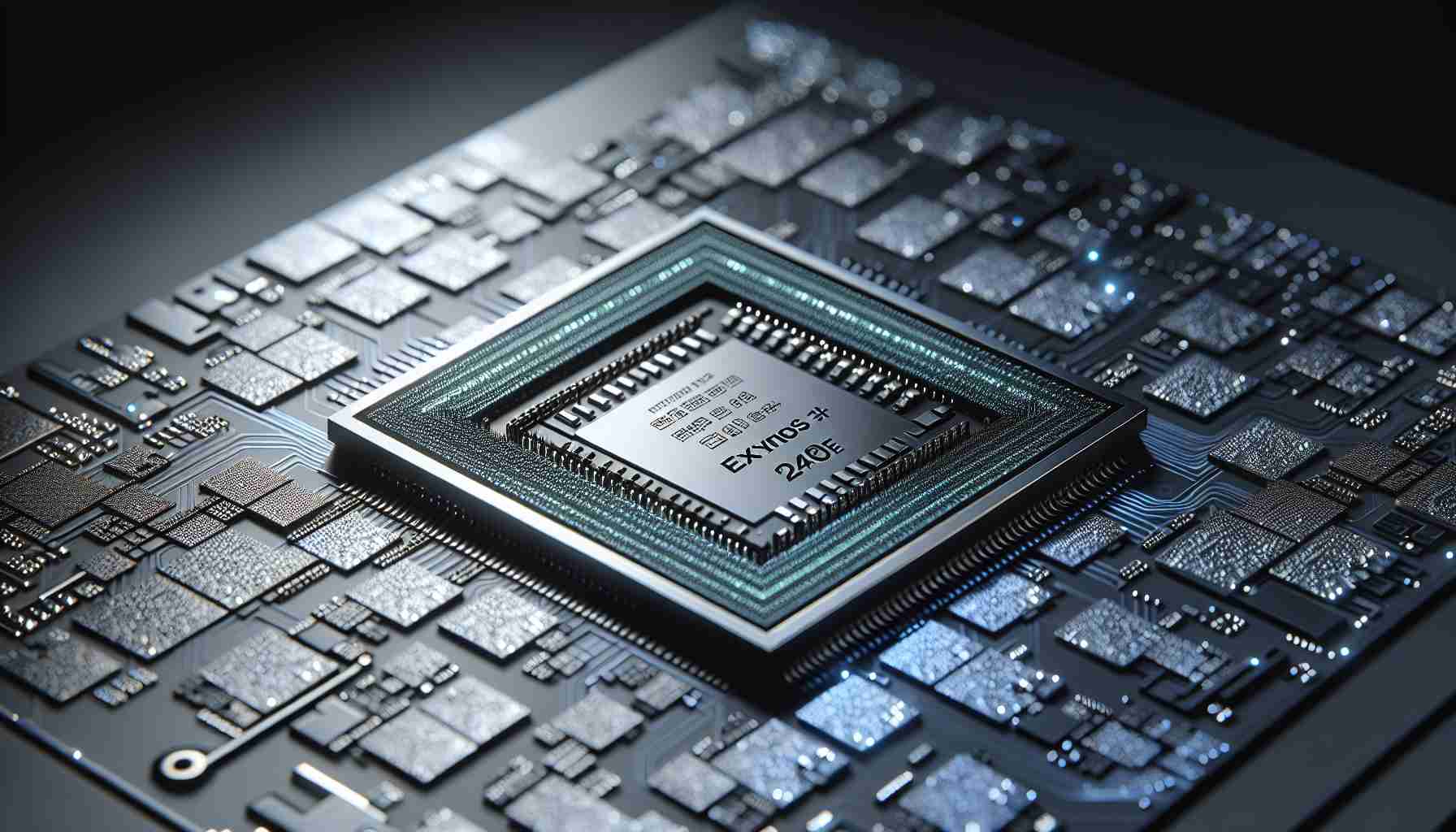Samsung is poised to boost the performance and efficiency of its smartphone lineup with the upcoming Exynos 2400+ chipset. Designed specifically for the Galaxy S24 FE, this new system-on-a-chip (SoC) aims to deliver a more cost-effective production process along with notable energy-saving features.
Significant efforts have been incorporated to refine the design and manufacturing of the Exynos 2400+, with expected power efficiency gains ranging between 5% to 10% compared to its predecessor. Such improvements promise to elevate the Galaxy S24 FE’s status as an optimal ‘value-for-money’ device without the premium price tag often associated with flagship models.
The transition to the Exynos 2400+ also hints at an increase in production yields, which translates into a higher number of usable chips from each silicon wafer. By enhancing the yield, Samsung can reduce the cost of production, an essential factor for the economically priced Galaxy S24 FE.
The reported advancements for the Exynos 2400+ include not only better power management but also potential performance enhancements due to Samsung’s innovative packaging technology. This could result in superior multi-core performance and improved thermal management, similar to the positive reception of the Exynos 2400 within the Galaxy S24 series, which benefited from effective cooling solutions such as vapor chambers.
While details are scarce, the conversation in the tech community is abuzz with anticipation for the Exynos 2400+, and industry observers are eager to witness its impact on the future Galaxy S24 FE smartphone. The commitment to heightened efficiency and reduced production costs signals Samsung’s continued investment in its chipset technologies, aiming to match or even surpass competitors in the market. As more details unfold, tech enthusiasts will no doubt be watching with keen interest.
Most Important Questions & Answers:
1. Why is the Exynos 2400+ chipset critical for the Galaxy S24 FE?
The Exynos 2400+ chipset is essential for the Galaxy S24 FE because it is expected to improve power efficiency and performance, aligning with Samsung’s intentions to provide a ‘value-for-money’ device that can compete with flagship smartphones, yet remain economically priced.
2. What are the expected improvements in the Exynos 2400+ chipset compared to its predecessor?
The Exynos 2400+ is anticipated to have a power efficiency gain between 5% to 10% and an increase in production yields that brings down production costs. With better power management and innovative packaging technology, it may also feature enhanced multi-core performance and improved thermal management.
3. What are the key challenges associated with the new chipset?
Challenges may include ensuring that the chipset delivers the expected efficiency and performance gains, integrating it with other smartphone components optimally, and facing competitors in the chipset market who are continuously innovating and advancing their technologies.
Key Challenges or Controversies:
– **Technological Advancements vs. Cost**: Balancing cutting-edge technology with cost constraints is always challenging, as R&D costs must be recouped without pricing the device out of its target market.
– **Market Competition**: Competing with chipsets like Qualcomm’s Snapdragon series or Apple’s Bionic chips in terms of performance, energy efficiency, and production costs.
– **Consumer Expectations**: Addressing consumers’ growing expectations for faster and more power-efficient smartphones without significant price increases.
Advantages & Disadvantages:
Advantages:
– **Increased Energy Efficiency**: A more power-efficient chipset can lead to longer battery life and decreased energy consumption.
– **Cost-Effective Production**: Higher production yields imply a more cost-effective production process, potentially leading to more affordable devices.
– **Performance Boost**: Advances in performance could make the Galaxy S24 FE a strong contender in its price bracket.
Disadvantages:
– **Technological Limitations**: There may be limitations to how much performance and efficiency can be improved within the cost constraints.
– **Heat Management**: Better performance often leads to overheating issues, which need to be managed effectively to avoid throttling or hardware damage.
– **Market Adaptability**: As technology and consumer needs evolve rapidly, the chipset must be adaptable to future demands to avoid obsolescence.
Related Links:
Visit Samsung’s official website for more information about their products and technology: Samsung Official.
